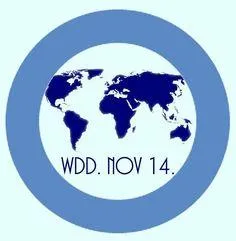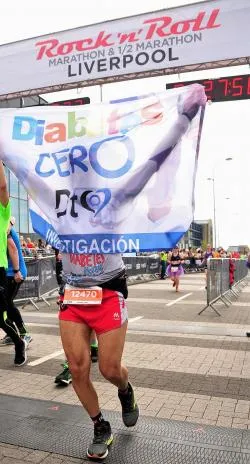Maria tells what diabetes is and how she lives it.I wanted his classmates, school and people in general to know diabetes and raise awareness a bit about all this ...
(Translated text)
Things to know about diabetes.
A few days before the end of last year I was diagnosed with "diabetes mellitus", or better known as type I diabetes. The symptoms I had was weight loss, tiredness, desire to eat sweet things (and that I had never likedthe sweet), he also drank a lot.Given the weight loss, which was almost 4 kg in less than a month, my parents took me to the pediatrician, which, when he checked the symptoms and the large amount of water he drank, he already suspected the cause and asked me for an analysisof bloodThe next day and with the results that confirmed the suspicions I was admitted to the hospital, where I was five days to regulate the amount of blood glucose and to learn how my life was going to be thereafter.
Type I diabetis is an autoimmune disease that mainly affects children.It has nothing to do with the diet or the lifestyle you have taken so far, that the type II diabetes that normally affects older people.The first comment that people make is that I liked the sweet and in my case is all the opposite.
It is a disease where the beta cells of the pancreas stop working.They are responsible for producing insulin.Insulin works as a key to open the cells and that the glucose that is in the blood between them so that our body has enough energy.If our body does not produce insulin, glucose remains in the blood and the body uses the energy accumulated in fat, which explains weight loss.
To carry good control of type I diabetes there are three fundamental pillars: injected insulin, diet based on carbohydrates and sport.
Unlike what many people think, glucose not only get it from the sugar we take, but all carbohydrates that food carry are transformed into glucose in our body.Foods such as pasta, fruit, cereals and some vegetables carry carbohydrates.
How does your life change when you diagnose diabetes?
I have to do glucose controls before each meal, before and after playing sports and given the suspicion of a decrease (hypoglycemia) or a rise (hyperglycemia).Calculate the amount of carbohydrates that I am going to eat and calculate the insulin that corresponds to me in each case.Take into account the amount of fat in each food, because it depends on the glucose to absorb more or less quickly.The activity also influences, and as I am checking now, the nerves.There are so many things to keep in mind that every day is different.It is a chronic disease that at the moment has no cure.
From here I want to take advantage of the opportunity that school gives me to raise awareness among all people and ask for their help to continue research and find a cure.
And thank all my teachers, my classmates and school in general their concern and involvement about my illness.











